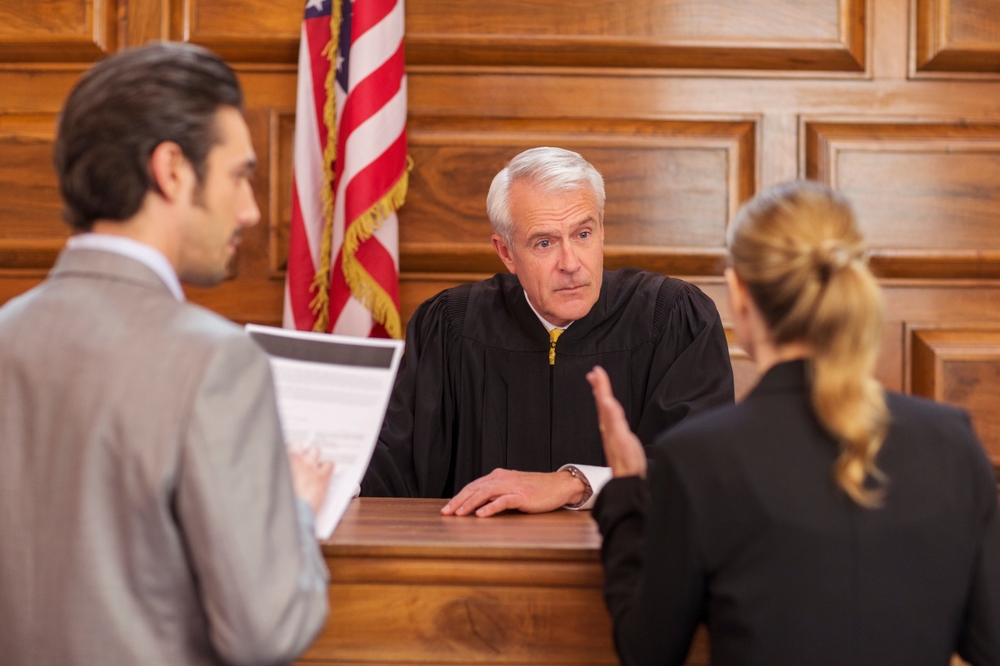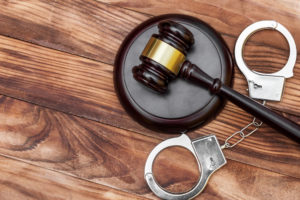
]Plea bargaining involves prosecutors and defense attorneys negotiating to resolve a criminal case. There are different types of plea deals, but no agreement becomes binding until the parties present it to a judge for approval.
When evaluating a proposed plea bargain, the judge must be informed of all the terms. For example, suppose the defendant agrees to testify against a codefendant in exchange for a lighter sentence. In that case, if the plea deal contains uncommon requirements about how the defendant will serve a sentence, the judge must be told.
This often raises the question of whether a judge can reject a plea deal. In this article, our Dallas criminal defense lawyers will go into depth about plea deals, including if a judge has the power to reject a plea bargain and more.
What Are Plea Deals?
Plea deals, also known as plea bargains, are agreements between the prosecution and the defendant in a criminal case. The defendant agrees to plead guilty or no contest to certain charges, like DWI charges, in exchange for concessions from the prosecution, such as reduced charges or a lighter sentence.
Is It Within the Judge’s Authority to Reject a Plea Deal?
Yes, judges have the authority to accept or reject plea deals. While plea deals are typically negotiated between the prosecution and the defense, the final decision rests with the judge, who must review the terms and determine if they are fair and in the best interest of justice.
What Factors Might Lead a Judge to Reject a Plea Deal?
NPR states that a majority of criminal cases end in plea deals. However, judges may reject a plea if they believe it is not in the best interest of justice, it undermines public safety, or it fails to address the severity of the offense adequately.
Factors that might lead to rejection include:
- The seriousness of the crime
- The defendant’s criminal history
- The presence of victims
- The interests of society
Can Judges Reject a Plea Deal if it Seems Too Lenient or Too Harsh?
Yes, judges can reject a plea deal if they find it too lenient or too harsh. They have the discretion to review the proposed terms and determine if the punishment aligns with the severity of the offense and the defendant’s guilt.

Can Defendants Appeal If the Judge Rejects Their Plea Deal?
Generally, defendants cannot appeal if the judge rejects their plea deal. Plea deals are considered discretionary matters, and appellate courts typically do not review or overturn a judge’s decision regarding plea bargains.

What Should Defendants Consider When Deciding Whether to Pursue a Plea Deal?
Defendants should consider factors such as the strength of the evidence against them, potential penalties if convicted at trial, the advice of their defense attorney, and their circumstances when deciding whether to pursue a plea deal.
How Common Is It for Judges to Reject Plea Deals?
The frequency of judges rejecting plea deals may vary depending on jurisdiction and individual cases. However, judges do exercise their authority to reject plea deals when they determine that they are not appropriate or just. It is a rare instance, but it does happen.
Can Judges Modify Plea Deals Instead of Rejecting Them?
In some cases, judges may modify plea deals instead of outright rejecting them. They may propose adjustments to the terms or conditions of the agreement to ensure they align with the interests of justice.
What Happens if a Plea Deal Is Rejected and the Case Goes to Trial?
Suppose a plea deal is rejected, and the case proceeds to trial. In that case, the defendant will have the opportunity to present their case, challenge the prosecution’s evidence, and have their guilt or innocence determined by the judge or jury.
What Role Does the Prosecution Play in the Judge’s Decision to Accept or Reject a Plea Deal?
The prosecution plays a significant role in the judge’s decision to accept or reject a plea deal. They present the terms of the agreement, provide reasons supporting its acceptance, and address any concerns the judge may have regarding the proposed deal.
Are There Any Legal Limitations On a Judge’s Ability to Reject Plea Deals?
While judges generally have discretion in accepting or rejecting plea deals, their decisions must still adhere to legal standards and principles. Legal limitations may vary by jurisdiction, but judges are expected to exercise their authority in a manner that upholds the principles of fairness, justice, and the rule of law.
What Can a Lawyer Do After a Judge Rejects a Plea Deal?
A judge’s power to reject plea deals serves as a vital safeguard, allowing the judiciary to uphold the principles of fairness, accountability, and the public interest in the administration of justice.
After a judge rejects a plea deal, a lawyer has several options to consider:
Additional Negotiations
First, they may engage in further negotiations with the prosecution to explore the possibility of revising the terms of the original plea agreement. This could involve addressing the concerns raised by the judge or addressing any legal or factual issues that led to the rejection.
The lawyer can advocate for their client’s best interests and attempt to reach a revised agreement that satisfies both the prosecution and the court.
Prepare a Strong Defense
Alternatively, if negotiations prove unsuccessful or if the client insists on proceeding to trial, the lawyer can prepare a strong defense strategy. They will gather evidence, interview witnesses, and analyze the prosecution’s case to identify weaknesses and opportunities for a successful defense.
A lawyer will also ensure that all legal procedures are followed and that their client’s rights are protected throughout the trial.
File a Motion to Reconsider
In some cases, a lawyer may choose to file a motion asking the judge to reconsider their decision to reject the plea deal. This motion would typically outline the reasons why the rejection was unjust or unsupported by the facts or law. Your lawyer can present arguments and evidence to persuade the judge to reconsider their previous ruling.
Ultimately, your lawyer’s role is to provide guidance and support to you, their client, explaining the available options and helping them make informed decisions. Whether it involves further negotiations, trial preparation, or pursuing a motion for reconsideration, your lawyer’s goal is to achieve the best possible outcome in light of the rejected plea deal. Contact us if you need representation.










